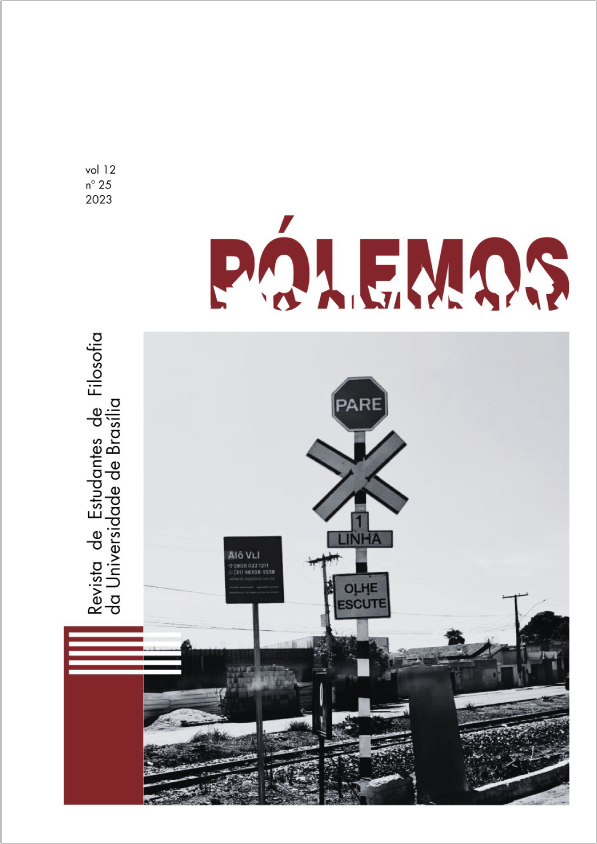SCHILLER AND THE POLITICAL PROMISE OF AESTHETIC EDUCA-TION
DOI:
https://doi.org/10.26512/pl.v12i25.48406Keywords:
Friedrich Schiller. Aesthetics. Politics.Abstract
This paper investigates how philosopher Friedrich Schiller's theory of beauty presents a new kind of freedom, with the aesthetic state of mind, that holds political promise. Schiller defended that, when contemplating beauty, no aptitude dominates the subject, who reaches a state of suspension, active and passive at the same time: the aesthetic state. Both his legislations, sensibility and reason, harmonize. Jacques Rancière argued, in Aesthetics and Its Discontents, that Schiller's aesthetic education can be an alternative to the idea of political revolution, as it configures a new experience of the sensible where everyone is equal. As Rancière pointed out, there is, in the experience of the aesthetic game, the revocation of the dominion that reason established over sensibility, such as that undertaken by the oppressor over the oppressed. This regime of autonomy in the form of the experience of the sensible goes beyond the aesthetic to the political, from beauty to freedom.
Downloads
References
ARENDT, Hannah. Lições sobre a filosofia política de Kant. Rio de Janeiro: Relume Dumará, 1993.
BARBOSA, Ricardo. Limites do belo: estudos sobre a estética de Friedrich Schiller. Belo Horizonte: Relicário, 2015.
BEISER, Frederick. Schiller as Philosopher. A Re-Examination. Oxford: Oxford University, 2005.
HEGEL, G.W.F. Cursos de Estética I. São Paulo: Edusp, 2015.
KANT, Immanuel. Crítica da faculdade de julgar. Petrópolis – RJ: Vozes; Bragança Paulista: Editora Universitária São Francisco, 2016.
RANCIÈRE, Jacques. Mal estar na estética. São Paulo — SP: Editora 34, 2023.
RANCIÈRE, Jacques. Aesthetics and its discontents. Cambridge: Polity Press, 2009.
RANCIÈRE, Jacques. Tempos modernos – arte, tempo, política. São Paulo – SP: n-1 edições, 2021.
SCHILLER, Friedrich. A educação estética do homem. São Paulo: Editora Iluminuras Ltda., 2017.
SCHILLER, Friedrich. Kallias ou Sobre a beleza: a correspondência entre Schiller e Körner. Rio de Janeiro: Jorge Zahar Ed., 2002.
SCHILLER, Friedrich. Sobre graça e dignidade. Rio de Janeiro: Movimento, 2008.
SCHILLER, Friedrich. Sobre poesia ingênua e sentimental. Lisboa: Imprensa Nacional-Casa da Moeda, 2003.
Downloads
Published
How to Cite
Issue
Section
License
Copyright (c) 2023 PÓLEMOS – Revista de Estudantes de Filosofia da Universidade de Brasília

This work is licensed under a Creative Commons Attribution-NonCommercial-NoDerivatives 4.0 International License.
Todos os trabalhos que forem aceitos para publicação, após o devido processo avaliativo, serão publicados sob uma licença Creative Commons, na modalidade Attribution-NonCommercial-NoDerivatives 4.0 International Public License (CC BY-NC-ND 4.0). Esta licença permite que qualquer pessoa copie e distribua a obra total e derivadas criadas a partir dela, desde que seja dado crédito (atribuição) ao autor / Ã autora / aos autores / às autoras.


